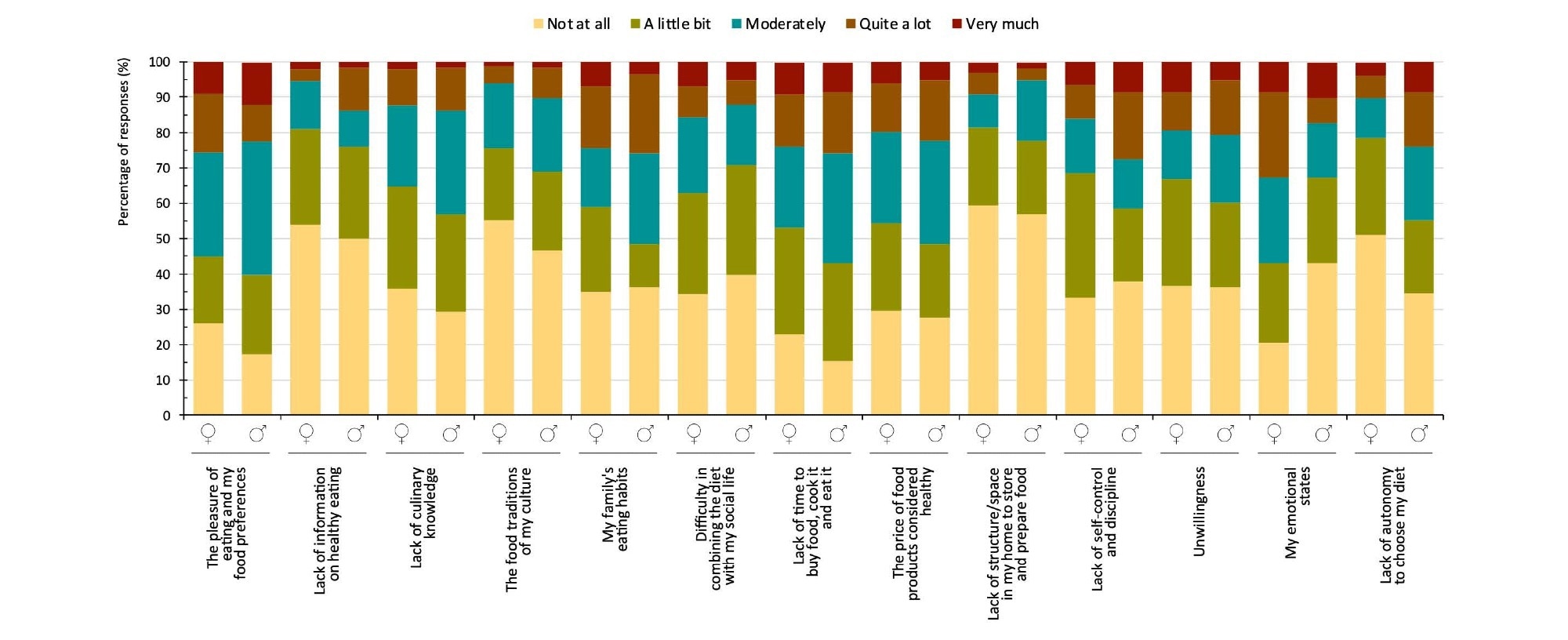In a recent study published in the journal nutrientsresearchers investigated the perceptions and barriers to healthy eating among undergraduate students in the Human Nutrition and Dietetics (HND) and Food Science and Technology (FST) programs in Spain.
They found differences in the definition of healthy eating between men and women and students at different academic stages, with major barriers such as family eating patterns, time constraints, and emotional states. , emphasized the importance of addressing these perceptions in future education. Expert in nutrition and food science.
 Research: What is a healthy diet? An exploratory study among nutrition and food science undergraduate students. Image credit: udra11 / Shutterstock
Research: What is a healthy diet? An exploratory study among nutrition and food science undergraduate students. Image credit: udra11 / Shutterstock
background
In modern industrialized societies, changing demographics, increasing obesity rates, and concerns about the prevalence of cardiovascular disease have intensified the debate over healthy eating habits.
Despite efforts by organizations such as the World Health Organization (WHO) and governments such as the European Union to promote healthy eating, there is no universal definition of what constitutes a healthy diet. Interpretations vary based on factors such as gender, age, and culture. background.
Medical and food-related professionals, such as nutritionists and food scientists, play a vital role in promoting healthy eating habits. However, people’s perceptions of healthy eating vary widely and can influence their practices.
Understanding these perceptions is important, especially during formative education, so that academic programs can adequately address diverse attitudes toward healthy eating.
About research
This study investigated perceptions and barriers to healthy eating among undergraduate students participating in HND and FST programs at a Spanish university.
This study employed an exploratory, descriptive, cross-sectional design combining qualitative and quantitative methodologies to understand university students’ perceptions of food and healthy eating.
A convenience sample of male and female students enrolled in HND and FST programs at the University of Barcelona was selected. Data collection included a questionnaire based on previous research and focus group discussions.
A thematic analysis was conducted on the focus group transcripts to identify key themes. The final survey was conducted online and received 300 complete responses.
Statistical analysis performed using SPSS revealed significant differences in perceptions between gender and grade groups.
Descriptive statistics such as mean and standard deviation were utilized, and chi-square tests were used to determine significant differences in response frequencies at a 5% significance level.
Investigation result
This study revealed several important findings regarding college students’ perceptions of health, body, and diet. The majority of students identified themselves as having a health condition and acknowledged the impact of food intake on their health.
Although most students considered their diet to be healthy, there was a gap among HND and FST students regarding the ease of maintaining a healthy diet and the importance of personal will in doing so. A difference appeared.
HND students were more likely to believe that their diet was healthier and easier to maintain than FST students, who placed more emphasis on personal willpower. Additionally, significant differences were observed between gender and year groups in perceptions of health, body image, and barriers to adopting healthy eating habits.
 Barriers to healthy eating based on gender.
Barriers to healthy eating based on gender.
Qualitatively, students emphasized the importance of variety, balance, moderation, and personalization in a healthy diet, relating it to the Mediterranean dietary pattern and considering beyond simply adhering to nutritional guidelines. There were many.
However, some FST students highlighted the perceived contradiction between healthy eating and personal enjoyment, suggesting a dichotomy between health and enjoyment in food choices.
Statistical analysis quantitatively revealed the differences in the importance attributed to different factors of healthy eating between HND and FST students and between different grades.
Additionally, there are significant gender differences in perceptions of barriers to practicing healthy eating habits, with emotional states and autonomy over food choices being more influential for women, whereas lack of autonomy is more influential for women. Men had more influence.
Overall, this study highlights the complexity of college students’ perceptions of health, diet, and barriers to healthy eating, and the need for individualized approaches and tailored interventions to promote healthy eating habits. is emphasized.
conclusion
This study investigated the perceptions of healthy eating among HND and FST university students in Spain and highlighted the predominance of beliefs that their diet is healthy, especially among HND students .
It identifies a trend towards individual responsibility in dietary choices, influenced by social norms and aesthetic ideals. Both groups value balance and variety, but FST students value fresh, natural foods and HND students value the pleasure of eating.
Barriers to healthy eating include family habits, time constraints, and emotional state. This study suggests the need to critically examine students’ attitudes during training and develop strategies to address environmental and personal factors.
However, there are limitations, including a single institution sample and potential bias in data collection methods, suggesting that a broader and more diverse research approach is needed in future studies.
Reference magazines:
- What is a healthy diet? An exploratory study with undergraduate nutrition and food science students. de Moraes Plata Gaspar, MC, Soar, C., Aguilera, M., Gómez, MC, Celorio-Sarda, R., Comas-Baste, O., Vidal-Carew, MC. nutrients (2024). DOI: 10.3390/nu16091365, https://www.mdpi.com/2072-6643/16/9/1365

